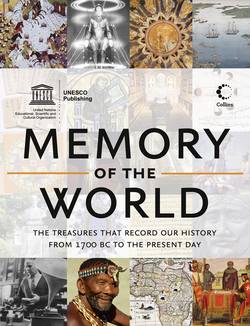Читать книгу Memory of the World: The treasures that record our history from 1700 BC to the present day - UNESCO - Страница 40
ОглавлениеMedieval manuscripts on medicine and pharmacy
Inscribed 2005
What is it
Three manuscripts from the Institute of Manuscripts of the Azerbaijan National Academy of Sciences (IMANAS), which holds 12,000 manuscripts in total. The manuscripts listed on the Register are three medical texts copied in the 12th, 13th and 18th centuries from earlier originals.
Why was it inscribed
These manuscripts on medicine and pharmacology are rare and valuable. One is a single-existing copy; another is one of the oldest copies in the world; and all were influential in their fields not only in Azerbaijan but also in neighbouring countries around the region.
Where is it
Institute of Manuscripts of the Azerbaijan National Academy of Sciences (IMANAS), Baku, Azerbaijan
The collection as a whole has 363 valuable medieval medical manuscripts: 222 are in Persian, seventy-one in Turkish and seventy in Arabic. The three books listed on the Register are Zakhirai-Nizamshahi (Supplies of Nizamshah) by Rustam Jurjani; Al-Qanun Fi’l Tibb (Canon of Medicine, The Second Book) by Ibn Sina (Avicenna); and Al-Makala as-Salasun (Thirtieth Treatise) by Abu al-Qasim al-Zahravi (Abulcasis).
The first of the works, Zakhirai-Nizamshahi by Rustam Jurjani, is not known to be in any other collection in the world. Its date of compilation is uncertain, but the manuscript was copied in the 16th century. The book provides descriptions of pharmaceutical properties of medicinal herbs, animal substances, minerals and complex medicines. It influenced the development of medicine and pharmacology in Persian-speaking areas and countries.
Al-Qanun (Canon of Medicine, The Second Book) by Ibn Sina (Avicenna), is a famous work in the field of pharmacology and medicine. The second book deals primarily with pharmacology and contains pharmaceutical descriptions of hundreds of natural medicines derived from plants, minerals and animal substances. It was one of the most influential and popular books of medicine in the world and was copied in AD 1143, only 104 years after the author’s death. The book was influential in the development of medical sciences in the Muslim world and in the West.
Al-Makala as-Salasum (Thirtieth Treatise) by Abu al-Qasim al-Zahravi (Abulcasis) is an Arabic book of surgery and surgical instruments and is a rare manuscript in world terms. The book contains pictures of approximately 200 medieval surgical instruments used at the time. Zahravi (who died in 1013) is the only medieval author who provides pictures of so many surgical instruments, together with explanation methods of their use. This work influenced the development of surgery in the Muslim East and Europe. This manuscript is the 13th-century copy of the 11th century book.
